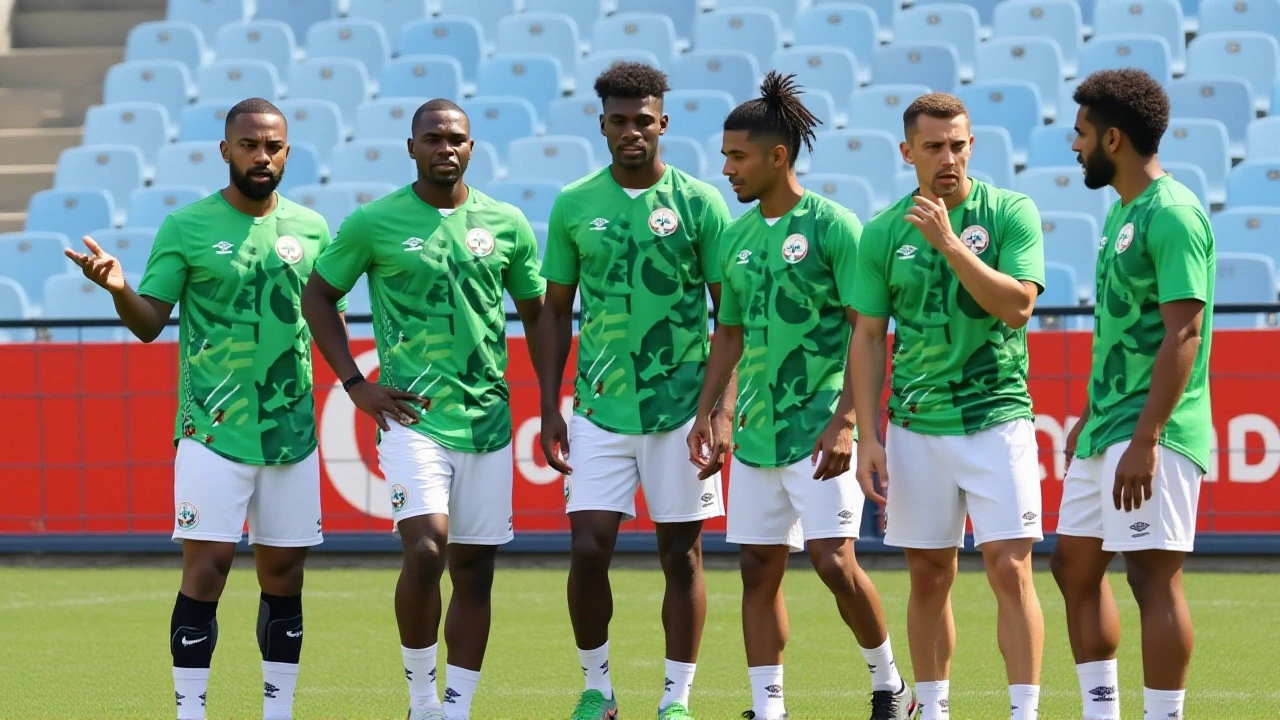Mali vs Madagascar World Cup Qualifier: Decisive Group I Showdown in Bamako
Mali host Madagascar in a decisive World Cup qualifier at Bamako's Stade du 26 Mars, with the runner‑up spot and playoff hopes on the line.
When looking at Mali, a landlocked West African nation with a rich history of empires, vibrant music, and a growing mining sector. Also known as Republic of Mali, it sits in the heart of the Sahel, a semi‑arid zone that links the Sahara to the savannas of sub‑Saharan Africa. Its capital, Bamako, serves as the political and cultural hub where French and local languages intersect. Understanding these core elements helps you grasp why Mali’s story matters across the continent.
Mali encompasses a mosaic of ethnic groups – the Bambara, Tuareg, Fulani and Songhai, each adding distinct music, cuisine and customs. This cultural diversity fuels a vibrant arts scene: the famous “kora” strings echo in Bamako’s cafés, while annual festivals showcase traditional dance. At the same time, Mali requires robust governance to balance regional aspirations, especially in the north where autonomy movements have shaped recent politics. The interplay between cultural identity and political stability defines much of the current news flow.
Gold mining influences Mali’s economy dramatically; the country ranks among the world’s top gold producers, with mines near Sadiola and Morila generating significant export revenue. However, mining also raises environmental and social questions, prompting debates over resource management and community benefits. Another pivotal factor is security in the Sahel, where cross‑border insurgencies affect trade routes and humanitarian efforts. The government’s response, often coordinated with regional bodies like ECOWAS, drives headlines about foreign aid, peace talks and development projects. Meanwhile, Bamako’s urban growth creates both opportunities – new infrastructure, tech startups – and challenges such as housing shortages and traffic congestion.
These themes produce clear semantic connections: Mali includes gold mining; gold mining influences Mali’s economy; security in the Sahel impacts Mali’s stability; Bamako hosts political decision‑making; cultural festivals enrich Mali’s social fabric. Each relationship reflects a subject‑predicate‑object triple that underpins the stories you’ll encounter below.
Our collection of articles captures this breadth. You’ll find reports on recent diplomatic moves, analyses of mining contracts, profiles of Bamako’s emerging music scene, and updates on security operations in the north. The pieces vary from quick news bites to in‑depth investigations, catering to readers who want a snapshot or a deep dive.
By framing Mali within its regional context and highlighting the forces that shape its daily reality, we give you a useful lens for interpreting each story. Whether you’re tracking policy shifts, following cultural events, or watching market trends, the following posts will keep you informed and ready to engage with Mali’s evolving narrative.

Mali host Madagascar in a decisive World Cup qualifier at Bamako's Stade du 26 Mars, with the runner‑up spot and playoff hopes on the line.
